Between 1-5% of cats have feline asthma, a lower respiratory tract disease. Cats’ immune systems are triggered by allergens or stressful situations to produce inflammatory reactions, which cause the airways to constrict and excessive mucus production. In the narrowed airways, the air has difficulty flowing naturally, causing wheezing, difficulty breathing, coughing, hacking, mouth breathing, and rapid breathing. If not given the right attention or treatment, it is possible in unfortunate situations for cats to die from asthma.
Even though asthma cannot be cured, it needs to be managed.
In traditional asthma treatment, corticosteroids and bronchodilators reduce lung inflammation and expand the bronchi or airways so they can function normally again. In many severe emergencies, cats suffering from asthma should have these medications on hand as they can save their lives.
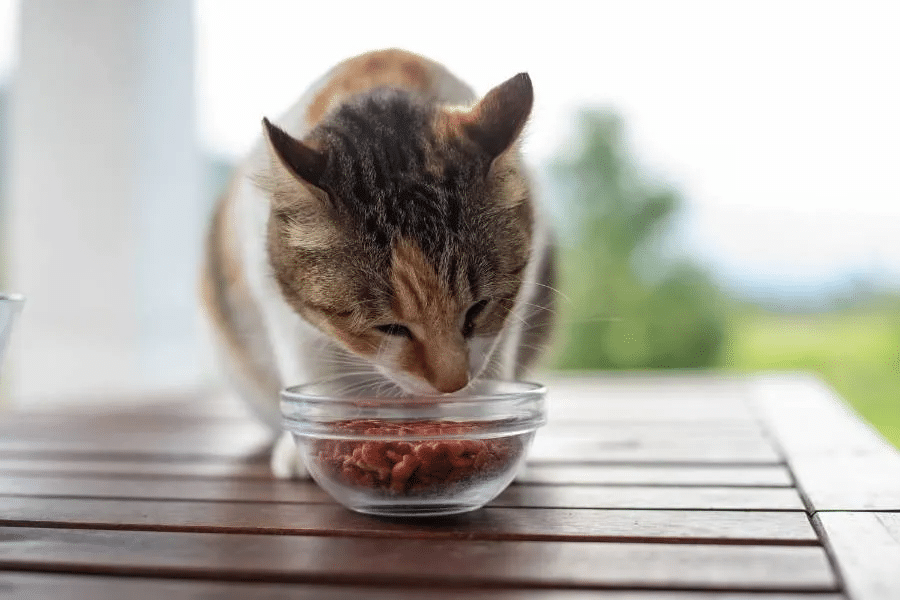
Source: google.com
What Is The Symptom Of Cat Asthma?
The severity of asthma varies from cat to cat. Cats with asthma may experience the following symptoms:
- Having a hard time breathing
- Breathing rapidly
- Sneezing
- Hacking or coughing
- Vomiting
- Chronic coughing
- Feeling weak
- Fatigue
Additionally, your cat may hunch his shoulders and extend his neck while coughing or breathing rapidly. A hairball can sometimes be mistaken for a coughing cat.
Cat Asthma Causes
Allergic reactions are thought to be the leading cause of cat asthma, but there may also be other factors. Allergens cause inflammation. Specific allergens can cause an allergic cat or kitten’s immune system to release chemicals that irritate the airways. As a result of irritated and tightened airways, breathing becomes difficult.
In addition to causing bronchitis and mucus production, allergies can irritate cats’ airways. As a result, coughing and airway obstruction can occur.
Cats are susceptible to specific allergens that trigger asthma:
- Smoke from tobacco
- Sprays with aerosols
- Cleaning products for the home
- Dusty cat litter
- Viruses
- Dust mites
- Mould
- Mildew
- Fireplace smoke
- Candle smoke
- Certain foods
The following conditions may also cause asthma symptoms in cats:
- Parasites
- Extreme stress
- Heart conditions
- Pneumonia
- Obesity
Can cats develop asthma more easily? Asthma can develop in any cat. It may also be genetic, but there haven’t been enough studies. It has been suggested that Siamese cats are more likely to suffer from asthma. Asthma is more common in some cat breeds, but we don’t know for sure.
Asthma is more likely to develop in cats who spend a significant amount of time outside than in cats who spend most of their time indoors. Their exposure to allergens is increased since they’re outside.
Best Food For Cats With Asthma
In addition to promoting your cat’s overall health, balanced nutrition is even more important for cats with asthma. A weakened immune system is standard in kittens who suffer from asthma. An optimal diet for your furry feline friend should be well-balanced, prevent inflammation, and mimic the diet the cat would eat in the wild. The first thing to do is to eliminate any dry food, especially those rich in grains, fish, and poultry. Whenever possible, purchase organic food that has been minimally processed.
Best Food For Cats With Asthma – What Should I Look For?
Felines are carnivorous animals that hunt their prey (rodents, birds), so their natural diet meets their dietary requirements. Which cat food should you choose for a cat with asthma to provide all the nutrition they need without compromising its immune system?
Protein is important
A cat’s primary source of nutrition is protein, which is found in cat food. They need it to develop, grow, and be healthy. Your cat’s health must consume a high-protein diet, which includes fish, eggs, poultry, and meat.
Metabolism Requires Fatty Acids
As a source of fatty acids required for metabolic regulation, healthy animal fats are beneficial.
Nutritional Supplements
Felines usually get vitamins and minerals from other animals they hunt, which is an essential part of their diet. Your cat’s immune system depends on food rich in vitamins and minerals.
Here Are Our Top Five Recommendations For The Best Food For Cats With Asthma.
Grain-Free Dry Food With Turkey & Chicken By American Journey
Deboned turkey is the first item on the ingredient list of this food by American Journey, followed by deboned chicken. Featuring high protein levels, this cat food is both flavorful and nutrient-dense. Soy, wheat, and other grains are not included in the formula. Besides improving your cat’s skin, coat, heart, and eye health, amino acids, antioxidants, and fatty acids support the immune system.
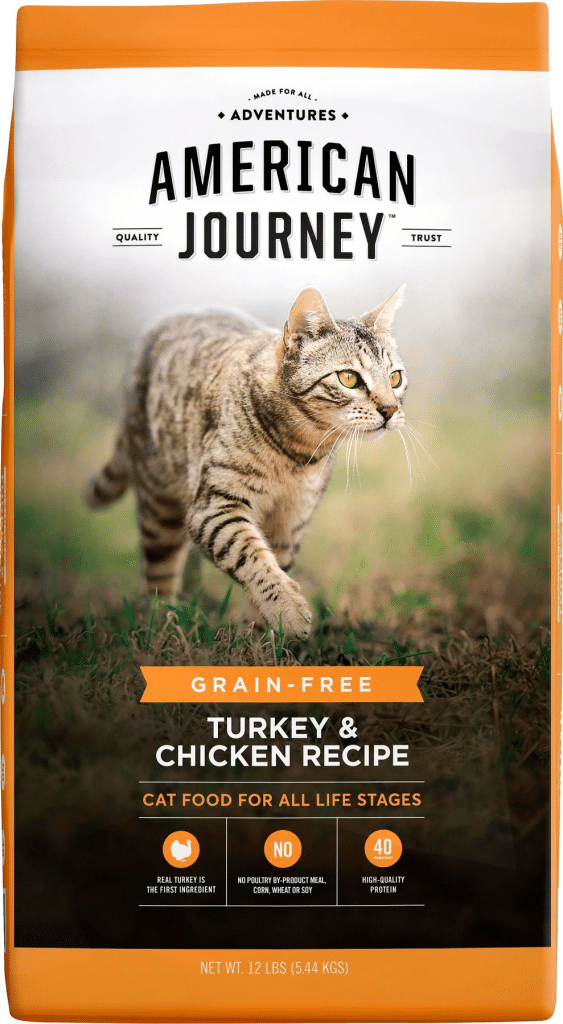
Source: google.com
- Grain-Free Food By Taste Of The Wild
You can feed your cat this high-protein recipe if you want to keep your kitty’s muscles, bones, and joints in good shape. The formula contains vitamins, minerals, omega fatty acids, antioxidants, probiotics, and prebiotics for your pet’s overall well-being and immunity.
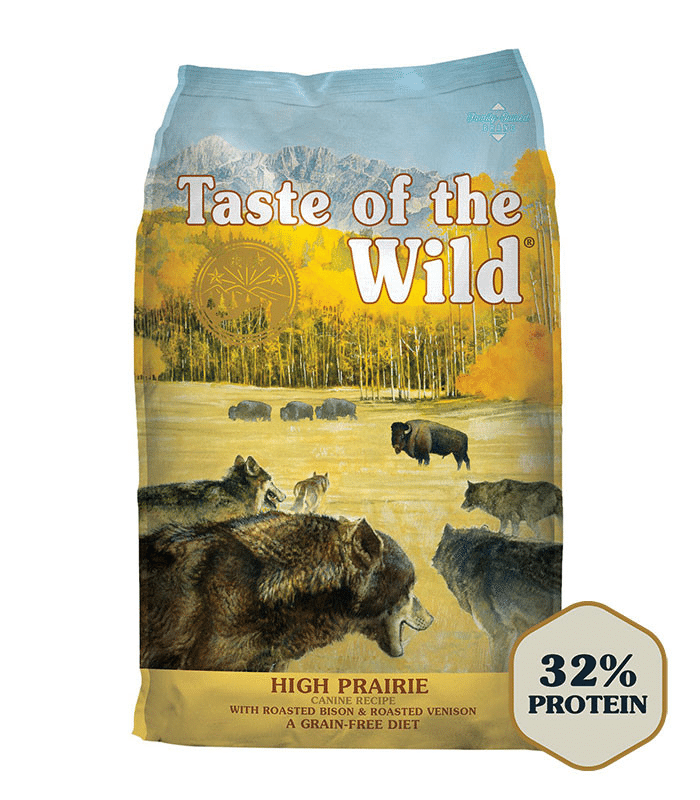
Source: google.com
Grain-Free Food With Chicken By Blue Buffalo
Blue Buffalo dry cat food promotes lean muscle growth by including real chicken in its ingredients. A blend of vitamins, minerals, and antioxidants strengthens your cat’s immune system. It also includes its formula with no artificial flavours, soy, wheat, corn, or meat by-products.
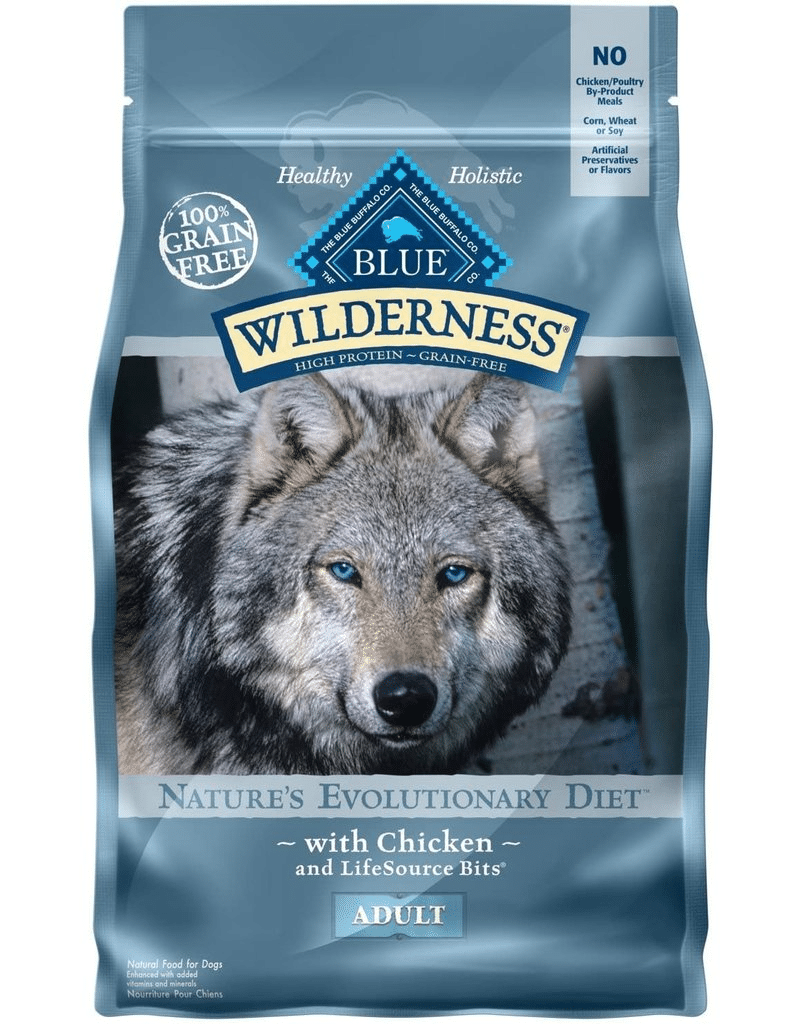
Source: google.com
- Grain-Free Food, Hydrolyzed For Food Intolerance By Blue Buffalo Natural Veterinary Diet
The dry cat food offered by Blue Buffalo contains hydrolysed protein that benefits cats with food intolerances. Salmon-derived protein in the veterinary formula provides your cat with readily digestible protein that minimises the risk of adverse reactions. Additionally, pumpkin contains Vitamin E, C, and antioxidants that support your cat’s immune system. Flaxseed and fish oil are rich in omega-3 fatty acids, essential for maintaining your cat’s coat and skin health.
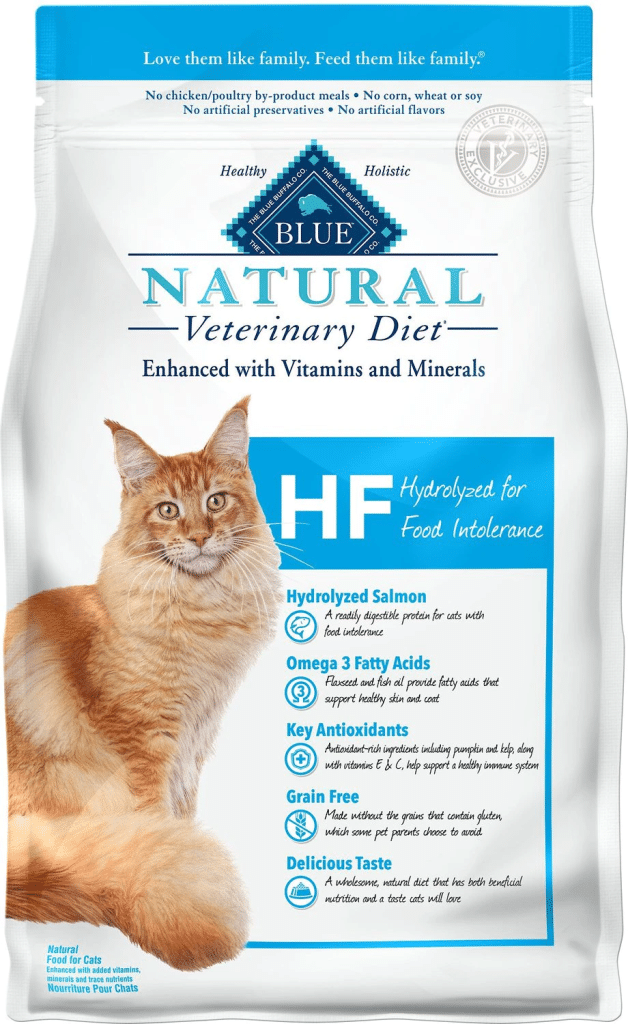
Source: google.com
Grain-Free Food With Chicken & Eggs By Purina Beyond
In addition to containing natural probiotics to support your feline’s digestive health, this white chicken meat-based dry cat food is enriched with a high amount of protein. It does not contain wheat, soy, corn, poultry by-product meal, artificial flavours or preservatives. The vitamins and minerals support a cat’s health and active life, and essential nutrients are added to the food.
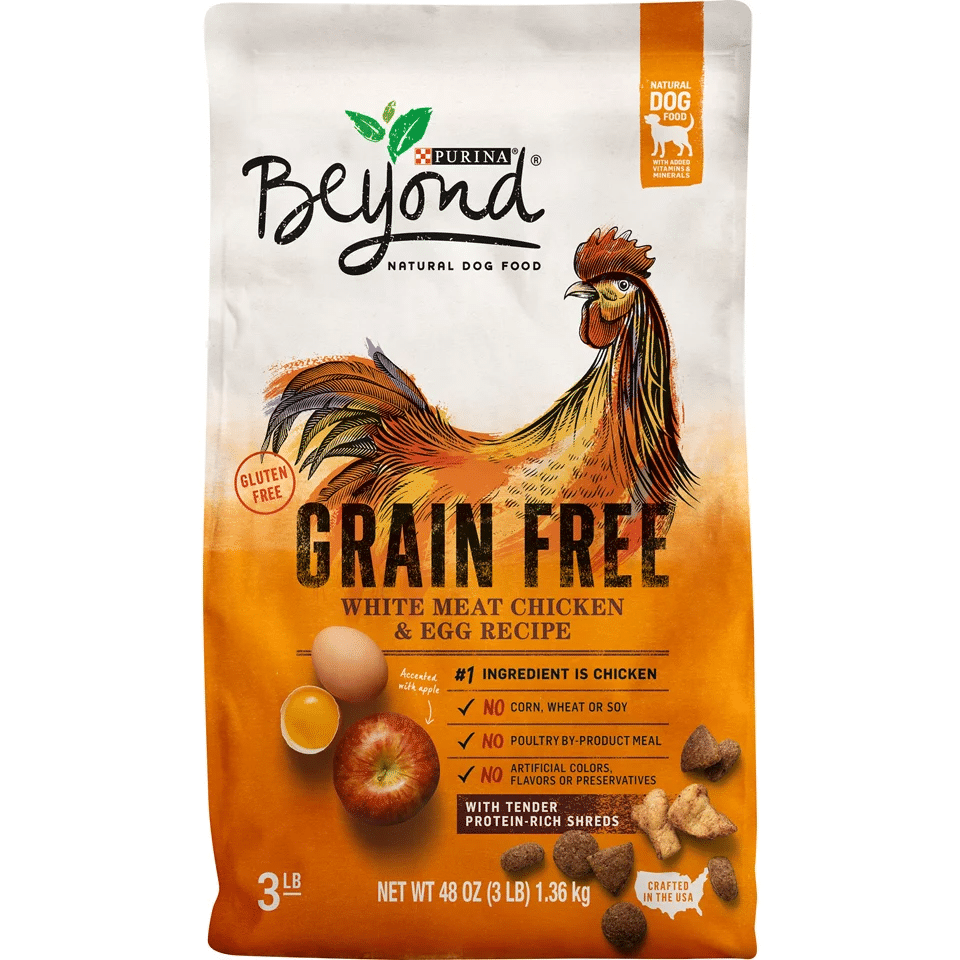
Source: google.com
Here Are Five Natural Remedies And Treatments For Cat Asthma
Mild asthmatic reactions can be managed with natural remedies. Your asthmatic cat might benefit from these five remedies.
Managing stress
The condition of asthma is well known to be triggered by stress. Avoiding stressful situations with your asthmatic cats, such as other pets, kids, and loud noises, will go a long way in preventing asthmatic attacks. It’s important to remember that cats are creatures of habit, which is why small changes easily stress them. Changing a person’s diet and habits or gradually rearranging their furniture is safer.
The best way to help the cat positively associate with the nebuliser, the transport box, the car, etc., is to use positive reinforcement techniques to reduce a stress-induced outcome. Asthmatic attacks can be prevented by gradually introducing any necessary changes rather than abruptly introducing them. Preventing, reducing, and managing asthmatic attacks is easier when you have a positive relationship with your treatment or transportation equipment.
Litter that is dusty or strongly scented should be avoided.
When your pet suffers from asthma, you should choose a suitable litter. If the litter is dusty or has a solid artificial smell, this can irritate the respiratory tissues and trigger an asthma attack. It is also imperative for cats with respiratory conditions to keep their litter boxes clean. If you want to place your cat’s litter box in an area with good air circulation, avoid covering it.
Air pollution should be avoided.
Smoke from cigarettes and chimneys should be avoided around your cat. Asthmatic attacks can be triggered by anything that irritates the respiratory tissue. It’s not recommended for cats suffering from asthma to live in cities with poor air quality and highly polluted environments. Ensure your cat does not get into the kitchen while cooking spicy food.
Fragrances and perfumes should be avoided.
A strongly scented floor cleaner, your favourite eau de toilette, or your favourite vanilla scented candles may irritate your cat’s airways and trigger an asthma attack. Keep your asthmatic cat away from strong-smelling substances.
Avoid allergens by recognising them and avoiding them.
Mould, mildew, pollen, other animals’ feathers or dander, dust mites, and certain foods may trigger inflammatory reactions in your cat and trigger asthma symptoms. Understanding the specifics of the condition is the first step toward managing it. It has been reported that asthmatic cats no longer suffer recurrent episodes after relocating to a new apartment, and a mould problem in the old apartment has been attributed to it.
Also: Read here.
Conclusion
Identifying potential allergens and triggers and avoiding them to reduce asthma attacks is essential. Cats suffering from feline asthma should always have access to corticosteroids and bronchodilators in emergency flare-ups.
It is very beneficial for your cat to take some supplements with anti-inflammatory properties, along with a diet that is low in carbohydrates and high in novel animal proteins.
FAQs
How long does an asthmatic cat live?
There is no definitive answer to this question. A person’s asthma type and severity likely determine how long they need to take medication.
It is common for cats suffering from asthma to cough, wheeze, and have difficulty breathing. Depending on the cause, dust and pollen can cause the condition, or it can run in families. Cats with asthma may also cough, wheeze, and have difficulty breathing when stressed or nervous.
Is it possible for cats to develop asthma from food allergies?
Cats are prone to food allergies. Various factors can cause them, including environmental allergens, food intolerances, and food allergies.
A cat’s immune system can produce an IgE antibody when it reacts with proteins in its food. When the cat eats an allergen, this antibody will continue to be produced until the cat stops eating the allergen. In response to the allergen, the cat’s IgE antibodies produce histamine, resulting in respiratory tract and airway inflammation.
